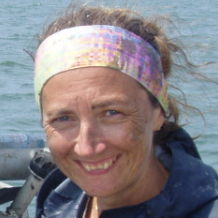Vulnerabilities
The diagnosis of the scientific community on the role of human activities in climate change and their impacts, present and future, is now widely accepted. The debates are now moving from the field of impacts to that of the actions necessary to answer the question: “Faced with this situation, what should be done and how?”
In this context, the way we look at climate change at the scale of a region like Nouvelle-Aquitaine is original in several respects. This territory is a space for action, reflection, debate and civic education in the face of the complex problems posed by environmental transitions. The territory’s vastness and diversity as relates to environmental factors (e.g. climate, landscape, relief) and human ones (e.g. economy, urban centres, rural areas) entails multiple questions with implications for the future imposed by climate change.
One way to initiate action is to first understand the vulnerability of systems (e.g. economic sectors, natural environments). A definition of vulnerability is given by the IPCC (2007): it refers to the “Vulnerability is the degree to which a system is susceptible to, and unable to cope with, adverse effects of climate change, including climate variability and extremes. Vulnerability is a function of the character, magnitude, and rate of climate change and variation to which a system is exposed, the sensitivity and adaptive capacity of that system.” The study of vulnerabilities not only makes it possible to qualify, and even quantify, the importance of certain effects on a system; it can also allow us to identify means of action to reduce vulnerabilities.
It is this notion of vulnerability that the Action Group is interested in developing. This work is made possible via exchanges between members of the scientific and civil society spheres, and a multiple-entry analysis taking into account social, environmental, production systems, and others.
The group’s main objectives are to:
- identify relevant works under way at the level of the Nouvelle-Aquitaine region;
- establish the approaches and systems studied;
- point out possible gaps or interactions of interest between existing works; and,
- suggest avenues to address them via research.


For all questions concerning this Action Group, please write to the group leads, Nathalie Caill-Milly and Servann HEROU, or to the general contact email address info@futurs-act.fr

Nathalie Caill-Milly – nathalie.caill.milly@ifremer.fr
Researcher in the ecology of fishery resources at the French National Research Institute for Ocean Science (IFREMER). She works on the ecology of exploited populations in connection with the study of fisheries and the environment, focusing in particular on coastal species (clam, red mullet) of the Bay of Biscay.

Servann HEROU – servann.herou@gmail.com;
Through his work as a high school teacher and as a founding member of the third place Ecocycle, Servann actively participates in the societal transition necessary to anticipate climate change. His research training during a PhD at the University of London and a post-doctoral fellowship at Imperial College has made him aware of the role that research can play in this transition.
